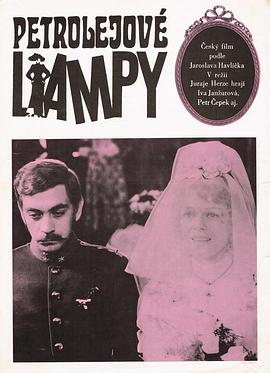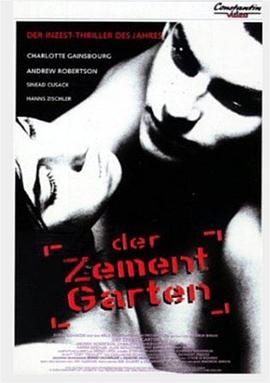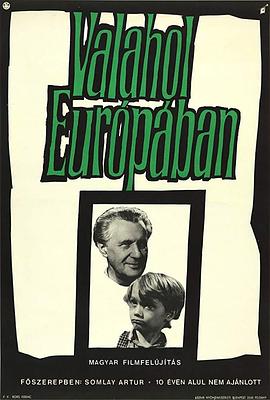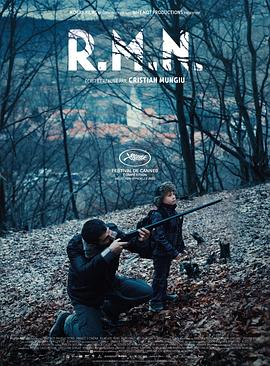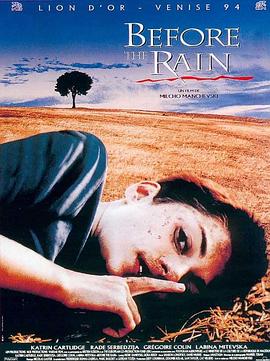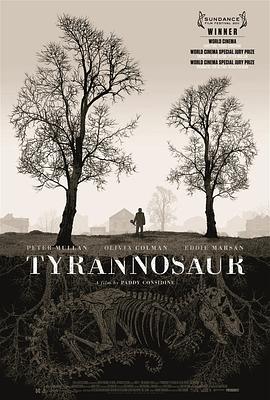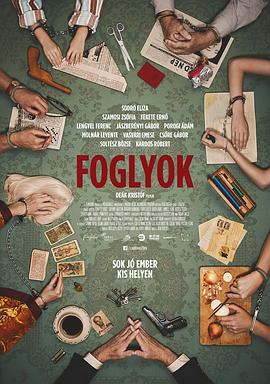备注:已完结
类型:剧情片
主演:西尔维斯特·史泰龙 塔莉娅·夏尔 波特·杨 塞奇·史泰龙 布吉斯·梅迪
导演:约翰·G·艾维尔森
语言:英语
年代:未知
简介:洛基电影的第五集。自从上一集洛基(西尔维斯特•史泰龙 Sylvester Stallone 饰)击败了苏联的拳击机械人后,他决意归隐,从此过些安安乐乐的日子。阴险商人杜克(东尼•布顿 Tony Burton 饰)是拳击经理人,利用拳击手赚黑心钱,他高薪引诱洛基投到他门下,洛基不为所动,断然拒绝了他的邀请。 退隐后的洛基还是没有离开拳击,他的好友拳击教练米克死后留下了一座拳击训练馆,洛基继承了米克的事业,每天到拳击馆里训练新人。年轻拳手绰号“机枪”的涛米极具天分,洛基倾其所有传授米涛拳术,米涛在洛基的帮助很快就跻身了优秀拳手的行列。成名后的米涛被名声和金钱所蒙蔽,投到了杜克的帐下,成了杜克阴谋的一枚棋子。 怒不可遏的洛基决定用自己的手段拯救米涛!
备注:已完结
类型:剧情片
主演:伊娃·简祖罗娃 彼得·采佩克 玛丽·罗苏尔科娃 奥塔·斯克伦奇卡 Vl
导演:尤拉伊·赫兹
语言:其它
年代:未知
简介:In small czech town named Jilemnice live unfortunate, but brave and jovial woman Štěpa Kiliánová, whose only desire was to fill the void in her virgin life. In despair and excessive trust, she married a sardonic, reclusive man, former lieutenant and gambler Pavel Malina, whose only wish was finally found peace and forgetting the past. They lived through unrequited love, dislike and disappointment. But no one knew that her groom begin to show signs of cerebral disease, which in the coming years engulf his sanity.
备注:已完结
类型:剧情片
主演:安德鲁·罗伯森 夏洛特·甘斯布 Alice Coulthard 奈德·
导演:安德鲁·伯金
语言:英语
年代:未知
简介:英国郊区,一家人搬到一幢黑色的公寓中。父亲(Hanns Zischler 饰)在修葺院子时猝死,母亲(Sinéad Cusack 饰)则自此患病,每况愈下。为了不使四个孩子被福利机构领走,母亲坚持不去医院,最终郁郁离开人世。长子杰克(Andrew Robertson 饰 )与长女朱莉(Charlotte Gainsbourg 夏洛特•甘斯布 饰)将母亲的尸体偷偷沉进水泥之中,带着弟妹汤姆(Ned Birkin 饰)和苏(Alice Coulthard 饰)独自生活。 四姐弟的生活虽然艰苦,却自由自在。杰克更与朱莉发展出一段禁忌之恋……
备注:已完结
类型:剧情片
主演:Artúr Somlay Miklós Gábor Zsuzsa Bá
语言:其它
年代:未知
简介:Somewhere in the remote region, the war ends. In the midst of ruined cities and houses in the streets, in rural hamlets, everywhere where people still live, are children who have lost their homes and parents. Abandoned, hungry, and in rags, defenseless and humiliated, they wander through the world. Hunger drives them. Little streams of orphans merge into a river which rushes forward and submerges everything in its path. The children do not know any feeling; they know only the world of their enemies. They fight, steal, struggle for a mouthful of food, and violence is merely a means to get it. A gang led by Cahoun finds a refuge in an abandoned castle and encounters an old composer who has voluntarily retired into solitude from a world of hatred, treason, and crime. How can they find a common ground, how can they become mutual friends The castle becomes their hiding place but possibly it will also be their first home which they may organize and must defend. But even for this, the price will be very high. To this simple story, the journalist, writer, poet, scriptwriter, movie director, and film theoretician Béla Balázs applied many years of experience. He and the director Géza Radványi created a work which opened a new postwar chapter in Hungarian film. Surprisingly, this film has not lost any of its impact over the years, especially on a profound philosophical level. That is to say, it is not merely a movie about war; it is not important in what location and in what period of time it takes place. It is a story outside of time about the joyless fate of children who pay dearly for the cruel war games of adults. At the time it was premiered, the movie was enthusiastically received by the critics. The main roles were taken by streetwise boys of a children's group who created their roles improvisationally in close contact with a few professional actors, and in the children's acting their own fresh experience of war's turmoil appears to be reflected. At the same time, their performance fits admirably into the mosaic of a very complex movie language. Balázs's influence revealed itself, above all, in the introductory sequences an air raid on an amusement park, seen in a montage of dramatic situations evoking the last spasms of war, where, undoubtedly, we discern the influence of classical Soviet cinematography. Shooting, the boy's escape, the locomotive's wheels, the shadows of soldiers with submachine guns, the sound of a whistle—the images are linked together in abrupt sequences in which varying shots and expressive sharp sounds are emphasized. A perfectly planned screenplay avoided all elements of sentimentality, time-worn stereotypes of wronged children, romanticism and cheap simplification. The authors succeeded in bridging the perilous dramatic abyss of the metamorphosis of a children's community. Their telling of the story (the scene of pillaging, the assault on the castle, etc) independently introduced some neorealist elements which, at that time, were being propagated in Italy by De Sica, Rossellini, and other film artists. The rebukes of contemporary critics, who called attention to formalism for its own sake have been forgotten. The masterly art of cameraman Barnabás Hegyi gives vitality to the poetic images. His angle shots of the children, his composition of scenes in the castle interior, are a living document of the times, and underline the atmosphere and the characters of the protagonists. The success of the picture was also enhanced by the musical art of composer Dénes Buday who, in tense situations, inserted the theme of the Marseilaise into the movie's structure, as a motive of community unification, as an expression of friendship and the possibility of understanding. Valahol Europaban is the first significant postwar Hungarian film. It originated in a relaxed atmosphere, replete with joy and euphoria, and it includes these elements in order to demonstrate the strength of humanism, tolerance, and friendship. It represents a general condemnation of war anywhere in the world, in any form.
备注:已完结
类型:剧情片
主演:格莱戈尔·科林 Dzemail Maksut 拉宾娜·米特威斯卡 米莉
导演:米尔科·曼彻夫斯基
语言:其它
年代:未知
简介:在马其顿,战争中的波斯尼亚,东正教的一位年轻修士以沉默保护一位年轻女孩,这位阿尔巴尼亚女孩涉嫌杀害一位东正教徒。但其实只是误会。修士以自己的善良决定与女孩私奔。 在伦敦,一位摄影记者(凯特琳·卡特利吉 Katrin Cartlidge 饰)在餐馆与她的丈夫谈论感情变淡的问题,二人争吵激烈之时,一名种族主义者冲入餐馆开枪扫射。爱,在生死之间突然变得清晰。 一位离开好友的摄影记者(拉德·舍博德兹加 Rade Serbedzija 饰)从伦敦出发,回到16年没来的老家马其顿。这里有他的老朋友,他的东正教朋友们,还有与阿尔巴尼亚人的种族矛盾。摄影记者尝试通过和解的方式化解纷争,但是,这一切远没有他想象的那么简单。 “圆圈不是一个圆。”三段相互交错的故事,不同文化、宗教、民族的误会造成的悲剧。
备注:已完结
类型:剧情片
主演:彼得·穆兰 奥利维娅·科尔曼 塞缪尔·博顿利 希安·布莱金 保罗·帕波
导演:帕迪·康斯戴恩
语言:英语
年代:未知
简介:脾气暴躁的约瑟夫(彼得·穆兰 Peter Mullan 饰)有一个破碎的家庭,他的生活自暴自弃混乱不堪。到处惹事的他无意间闯入了一间服装店,结识了店主汉娜(奥莉薇娅·柯尔曼 Olivia Colman 饰)。汉娜是一名虔诚的天主教徒,住在高档小区,有一个完美无瑕的丈夫,但是无法生育的事实让她一直都耿耿于怀。约瑟夫在汉娜的身上感受到了同自己相似的气息,果不其然,汉娜的生活并不如表面上那样平静,看似完美的丈夫在背地里却是一个可怕的施虐狂,动则就对妻子拳脚相加。某日,经历过又一番非人折磨的汉娜鼻青脸肿的找到约瑟夫,她告诉他自己已经决定离开丈夫,希望约瑟夫能够收留无亲无故的她。这一举动触动了约瑟夫对已故妻子的回忆,他答应帮汉娜回家收拾行李。约瑟夫拿着汉娜的钥匙进入了汉娜家,但出现在眼前的情景却让他大吃一惊。 无因的暴力,就像暴龙般在这个街区的上空徘徊不去。
备注:已完结
类型:剧情片
主演:Eliza Sodró 索菲娅·绍莫希 Ernõ Fekete 列文特
导演:克里斯托弗·迪克
语言:其它
年代:未知
简介:When Fuchs starts his new job as a teacher in a prison school, replacing the old and unconventional teacher Berger against her will, he is forced to confront his biggest fear, triggered by the mysterious, withdrawn inmate Samira.
本站只提供WEB页面服务,本站不存储、不制作任何视频,不承担任何由于内容的合法性及健康性所引起的争议和法律责任。
若本站收录内容侵犯了您的权益,请附说明联系邮箱,本站将第一时间处理。
www.mgxy0531.cn 联系方式:1845554065@qq.comCopyright© 2024 飘花影视-热播高清免费在线电影-永久VIP电影4K观影站 All Rights Reserved

